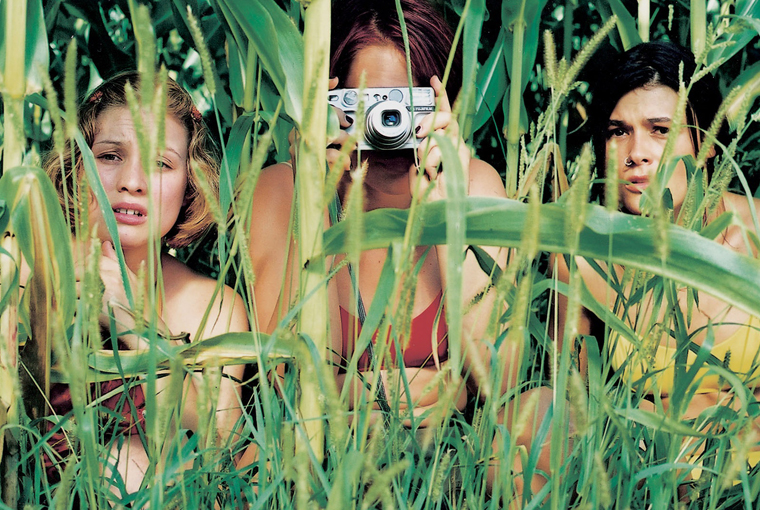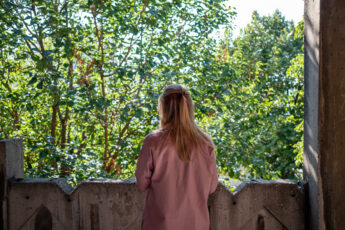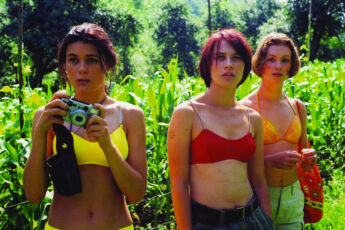
In 2019, German Chancellor Angela Merkel met with the President of Greece, Prokopis Pavlopoulos. Their conversation covered war reparations, the refugee crisis, and the integration of Balkan counties into the EU. One year earlier, Greece and the then-Republic of Macedonia had signed an agreement at lake Prespa resolving a longstanding naming dispute. Merkel said that “it is a good thing for both Greece and Europe that there is a peaceful development in the Western Balkans region”. The conservative nationalist newspaper Estia felt compelled to report what was discussed behind closed doors. According to the paper, Pavlopoulos clarified that “we are not the Balkans, Mrs. Merkel!”. He then explained that “Greece is Southeastern Europe […] The Balkans are Kosovo, Bosnia, Albania, etc.”
In his history of the Balkans, Mark Mazower observes that “the Balkans” have always been more than a geographical concept. When the term was first introduced to describe the people and lands of the “Balkan Peninsula” in the early 20th century, “it was loaded with negative connotations – of violence, savagery, primitivism.” “Why ‘savage Europe’?” asked the journalist Harry de Windt in his 1907 book of the same name. “Because . . . the term accurately describes the wild and lawless countries between the Adriatic and Black Seas.”
With this history, it is almost heroic that the Thessaloniki International Film Festival managed to run its “Balkan Survey” for almost 30 years without the side program ever representing a freak show. The Balkan Survey was initiated in 1994 to foster cultural exchange between the Balkan countries. Two years earlier, in 1992, the festival had rebranded itself as “international” with the aspiration of becoming a leading player in the economic and cultural regeneration of the Balkans. The festival’s emphasis on the Balkans served two purposes: to support filmmakers and foster collaborations, and to cultivate audiences for their films. The festival initially showed its support for the industry by introducing initiatives like the “Balkan Forum” in 1994, followed by the script development project “Balkan Fund” from 2003 to 2010.
Dimitris Kerkinos, who was the programmer of the Balkan Survey since 2002, selected contemporary films exhibiting aesthetic and narrative originality while reflecting important aspects of Balkan life and identity. Showing these films together, Kerkinos wrote in an article celebrating the 20th anniversary of the Balkan Survey program, enabled audiences to identify both similarities and differences, fostering understanding of the “other”, and contributed to appreciation of a shared regional identity. “It was an effort to offset the negative representations of the international media regarding the Balkans”, Kerkinos observed.
Recently, the festival announced the end of the Balkan Survey. The side program will now be called “Survey Expanded” and include 36 countries of Southeast Europe, the Mediterranean and the Middle East. From the press release, it is hard to understand the motivation for this decision. The sentence closest to an explanation is about “the change in the human geography of this vast region”. Arguments for a shared Mediterranean culture and identity are certainly valid. However, Mediterranean film festivals already exist in Malta, Montpellier, Split, Tangier and Tbilisi. With 36 represented countries, the new “focus” may end up losing its coherence, ultimately representing nothing at all. More importantly, now that tensions in Kosovo have been flaring up again and with Serbia declaring its EU-membership prospects to be dire, it may be as important as ever to seek out bridges of communication through common cultural roots in the Balkans. In that respect, the rebranding of the side program could be interpreted as a dissociation from “the Balkans” and the derogatory connotations it initially intended to break down.
In a climate of growing geopolitical tensions, cultural stereotypes are likely to reemerge. European integration and initiatives such as the Balkan Survey have contributed to making it possible to view the Balkans with a fresh perspective and engage in discussions that go beyond simplistic notions of good or evil. Gestures such as dropping the word “Balkan” from a film program do the reverse. Much like Estia’s account on Pavlopoulos saying that “Greece is not the Balkans”, such gestures encourage nationalism and threaten to restore preconceived notions we have been accustomed to for so long. While Estia is known to be conservative and nationalist, the Thessaloniki festival is supposed to be progressive. Taken to appease nationalistic sentiments, such actions risk compromising the values of inclusivity, understanding, and openness that cross-cultural events should uphold. Succumbing to nationalism could undermine the festival’s progressive mission and contribute to perpetuating divisive narratives that hinder genuine cross-cultural exchange and cooperation in the region.
***
In this month’s issue, we are publishing two essays tackling the issue of how one can cinematically represent the war. In their discussion of Teona Strugar Mitveska’s The Happiest Man in the World, Ana Grgić and Antonis Lagarias problematize the film’s trust in the possibility of redemption. Tajana Kosor meanwhile addresses our privileged as well as ignorant position vis-à-vis the Russo-Ukrainian war through her meditation on Vitaly Mansky and Yevhen Titarenko’s Eastern Front. Another pair of articles discusses the challenges of womanhood in our society through stories each featuring three women dealing with existential threats. Mihai Fulger reviewed Cristina Groșan’s Ordinary Failures at the Crossing Europe festival in Linz, whereas Julia Skala revisits Maja Weiss’ 2002 Guardian of the Frontier. In our Interviews section, you will also find a conversation with Weiss about the ongoing relevance of her debut feature. Finally, we are publishing Antonis Lagarias’ review of Tünde Skovrán’s Who I Am Not, a film that addresses intersexuality while failing to address its intersectional underpinnings.
We hope you enjoy our reads.
Konstanty Kuzma & Moritz Pfeifer
Editors




Leave a Comment